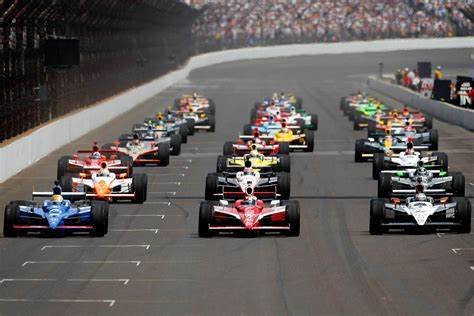Formula 1 (F1) is widely recognized as the pinnacle of motorsport, combining cutting-edge technology, fierce competition, and incredible skills from the world’s best drivers. With a history dating back to the early 20th century, F1 has evolved into a global phenomenon, captivating millions of fans around the world. This guide aims to provide an overview of what makes Formula 1 so exciting, covering its history, structure, teams, drivers, and the experience of attending a race.
- The History of Formula 1
Origins:
– The first recognized World Championship for Drivers was established in 1950, but the roots of F1 can be traced back to the European Grand Prix races of the 1920s and 1930s.
– Over the decades, F1 has seen its share of legendary teams, iconic drivers, and significant technological advancements.
Evolution:
– The sport has evolved with changes in engineering and safety standards, leading to the advanced and highly competitive environment seen today.
– Major milestones include the introduction of rear-engine cars, expansion into new markets, and the consistent push for safety improvements.
- The Structure of Formula 1
World Championship:
– Formula 1 consists of a championship for drivers and a championship for constructors (teams).
– Points are awarded based on finishing positions in each race, influencing both titles.
Race Weekend Format:
– Practice Sessions: Teams have practice sessions (usually two) leading up to the qualifying rounds to fine-tune their setups.
– Qualifying: These sessions determine the starting grid for the race, significantly impacting drivers’ strategies and opportunities.
– The Race: Each race typically involves a set number of laps around a circuit, with drivers competing for the best finishing positions.
Circuits:
– F1 races are held on a mix of permanent circuits and temporary street circuits across the globe, allowing for varied and challenging racing environments.
- Teams and Constructors
– F1 features a mix of historic teams and new entrants, each with its unique heritage and approach to racing.
– Prominent teams include:
– Scuderia Ferrari: The oldest and one of the most successful teams in F1 history.
– Mercedes-AMG Petronas: Dominant in the 2010s, known for its advanced engineering and strong driver lineups.
– Red Bull Racing: Known for its innovative designs and multiple championships in the recent past.
– McLaren: A storied team with a rich history in both engineering and driver development.
- Drivers
– Formula 1 attracts the best drivers worldwide, often seen as the ultimate test of skill, precision, and mental fortitude.
– Notable figures in F1 history include:
– Ayrton Senna: Widely regarded as one of the greatest drivers in the sport’s history.
– Michael Schumacher: Holds numerous records in F1, including seven World Championships.
– Lewis Hamilton: A modern icon and one of the most successful drivers, with multiple championship victories.
- Technology and Engineering
Cutting-Edge Innovation:
– F1 cars are at the forefront of automotive technology, featuring advanced engineering in areas such as aerodynamics, power units, and materials science.
– The use of hybrid technology, particularly the Energy Recovery System (ERS), showcases F1’s commitment to innovation and sustainability.
Safety Developments:
– Continuous improvements in safety standards and regulations have minimized risks, with innovations like the Halo device and improved circuit designs contributing to driver safety.
- Attending a Formula 1 Race
Experience:
– Attending a Grand Prix is a sensational experience, filled with the roar of engines, the thrill of speed, and the excitement among fans.
– Race weekends often feature additional activities, fan zones, and opportunities to meet drivers and see cars up close.
Tips for Attendees:
– Plan Ahead: Secure tickets well in advance and familiarize yourself with the circuit layout and parking facilities.
– Arrive Early: Arriving before the race allows you to soak in the atmosphere, explore paddock areas, and engage in fan activities.
– Engage with Content: Use social media and the official event app to stay updated and get involved in discussions with other fans.
- The Global Impact of Formula 1
Cultural Influence:
– F1 has a significant cultural impact, influencing fashion, music, and popular culture while promoting themes of precision, excellence, and competition.
– The rise of F1 in emerging markets, particularly in countries like Vietnam and Saudi Arabia, showcases the championship’s growing global footprint.
Environmental Initiatives:
– The sport is increasingly focused on sustainability, with initiatives aimed at reducing carbon footprints and promoting eco-friendly practices, including discussions about fully electric racing in the future.
Conclusion
Formula 1 remains a fascinating blend of speed, technology, and competition, drawing fans from all walks of life. Understanding its history, structure, and the experiences surrounding it enhances appreciation for this incredible sport. Whether you’re watching from the stands, following along at home, or dreaming of one day driving in F1, the world of Formula 1 promises excitement and drama at every turn. Embark on your journey into the pinnacle of motorsport, and become part of the fast-paced, thrilling world that is Formula 1!










